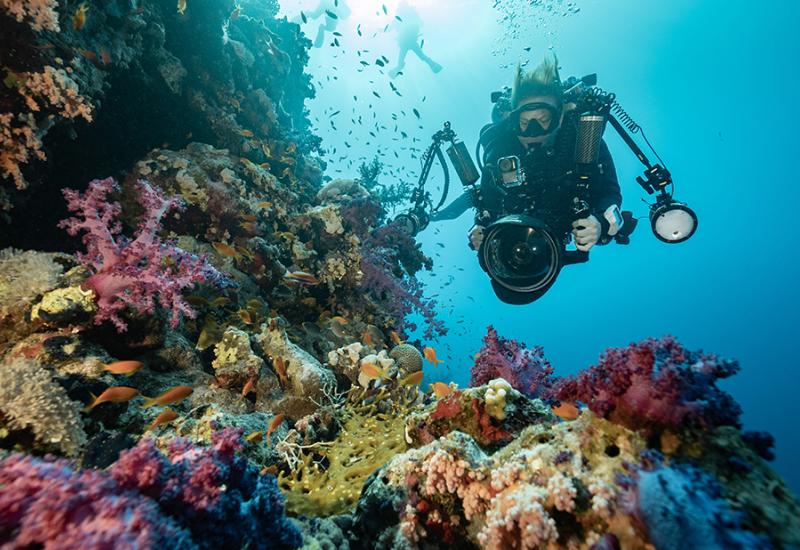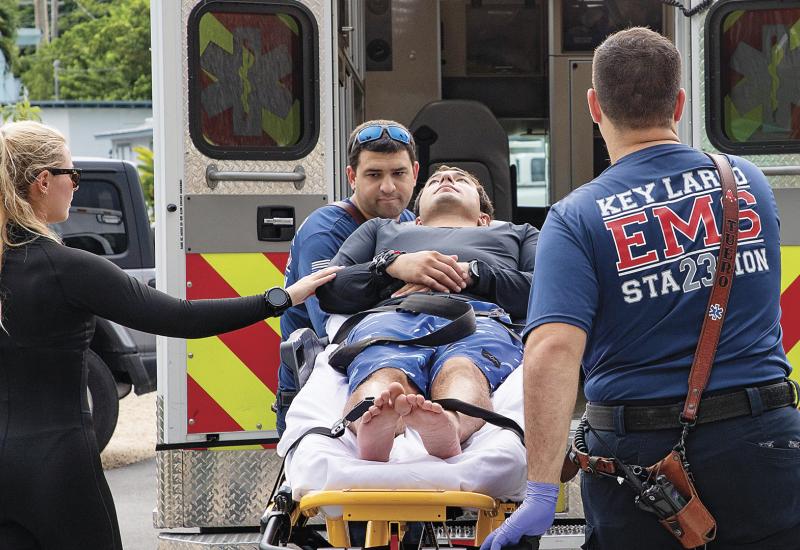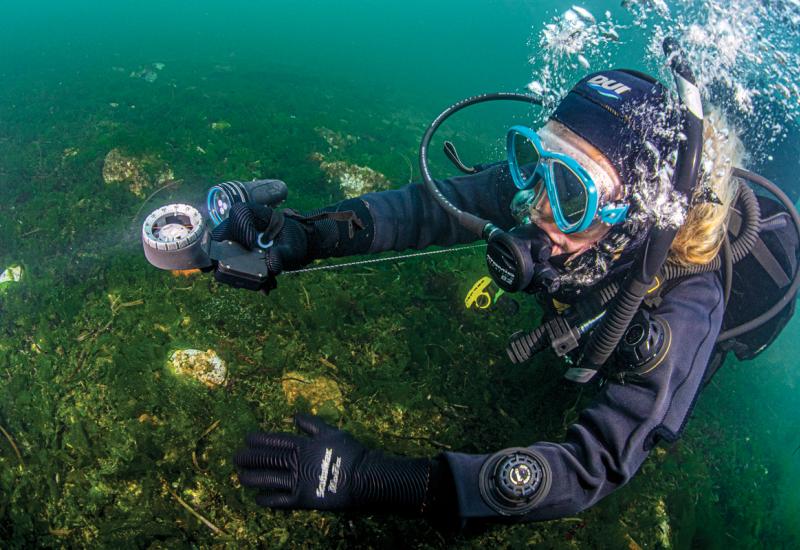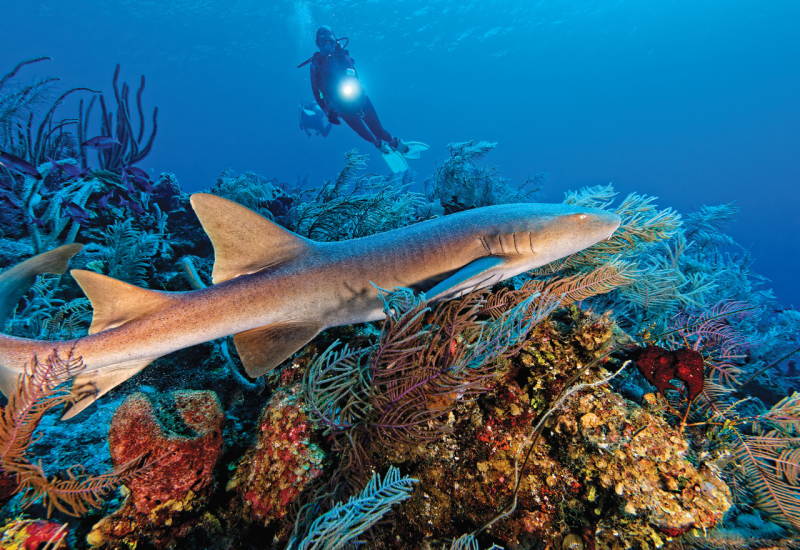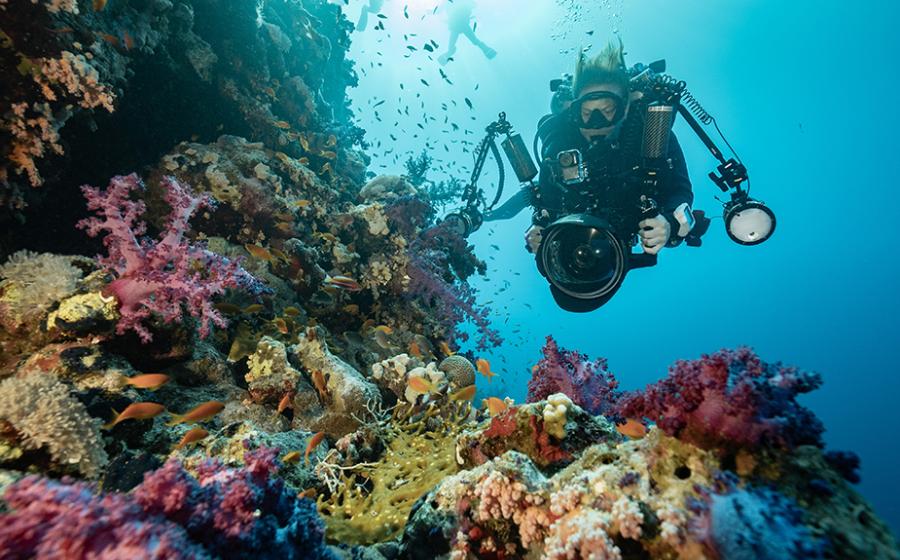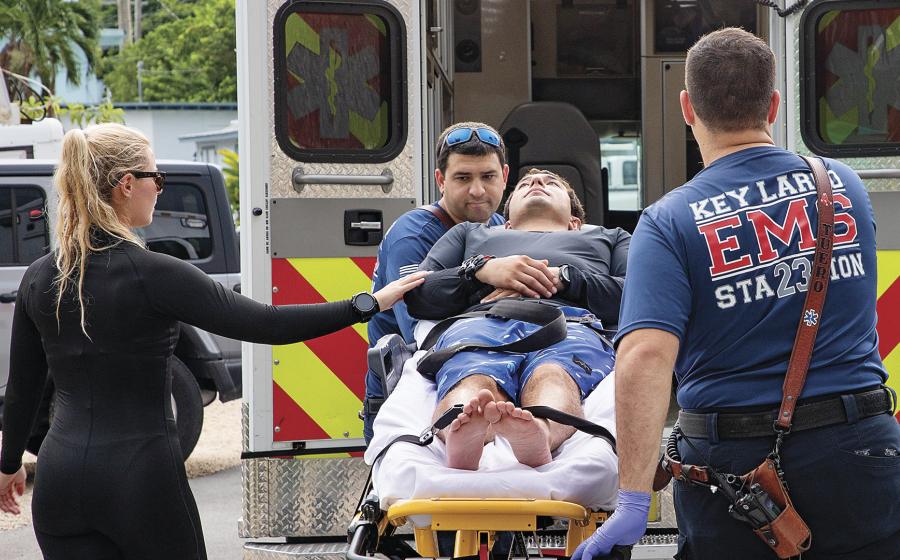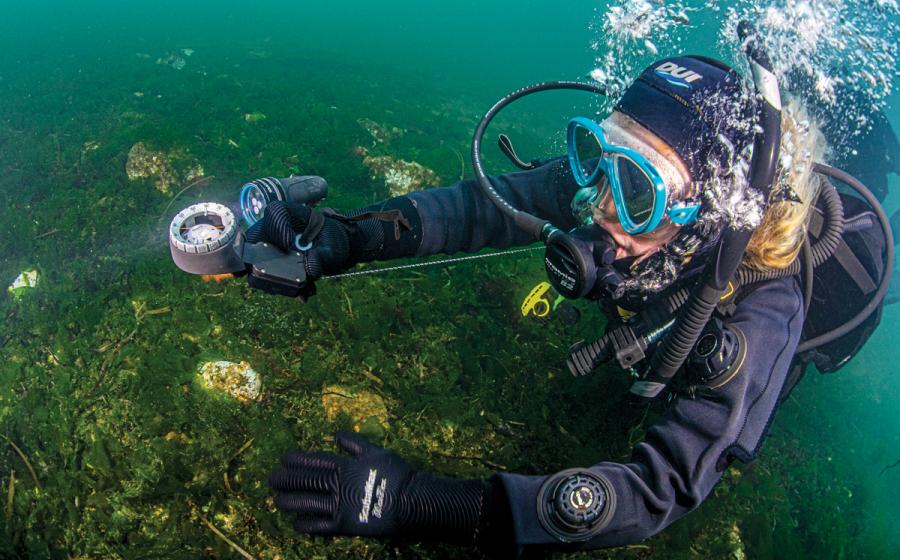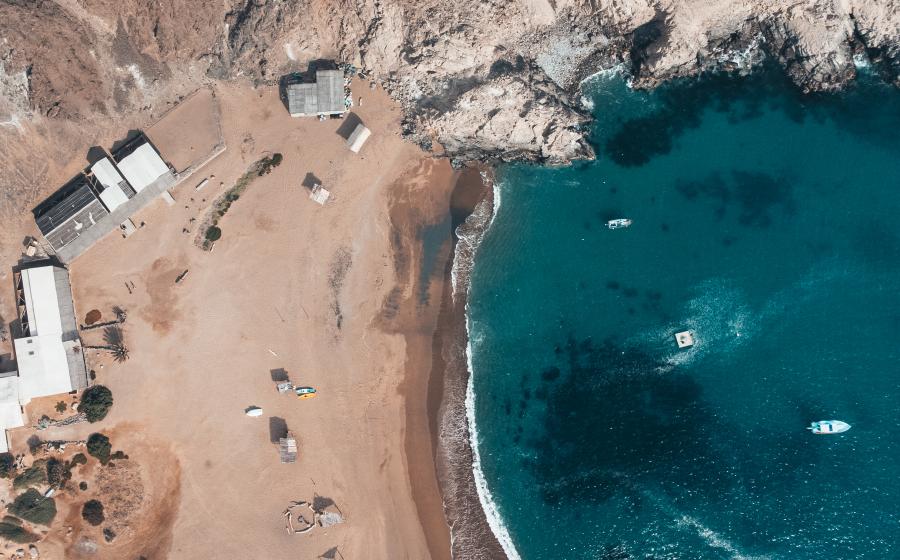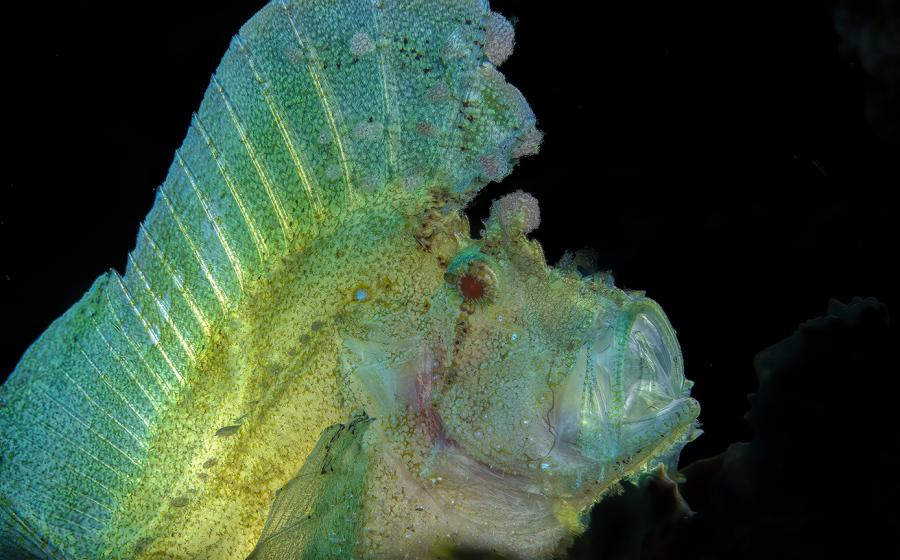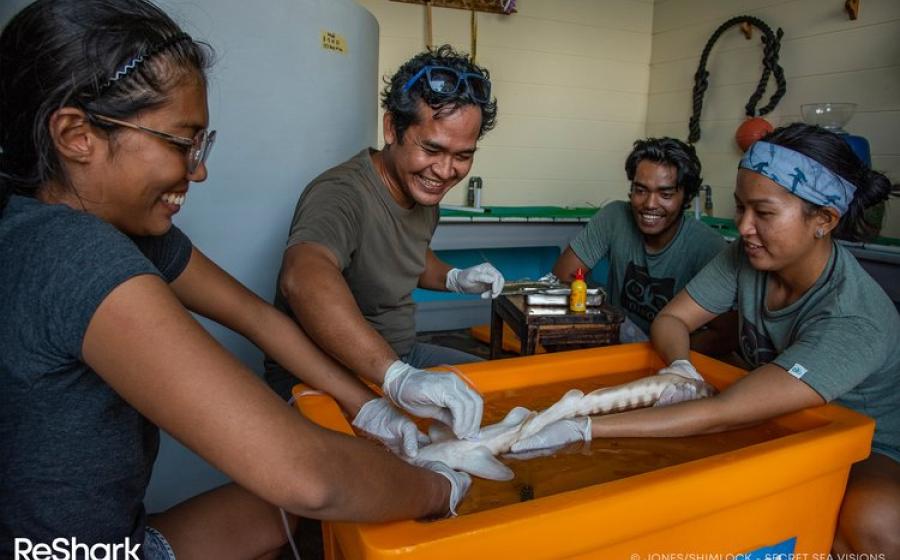In the Field: What It’s Like to Be a ScubaLab Dive Product Tester
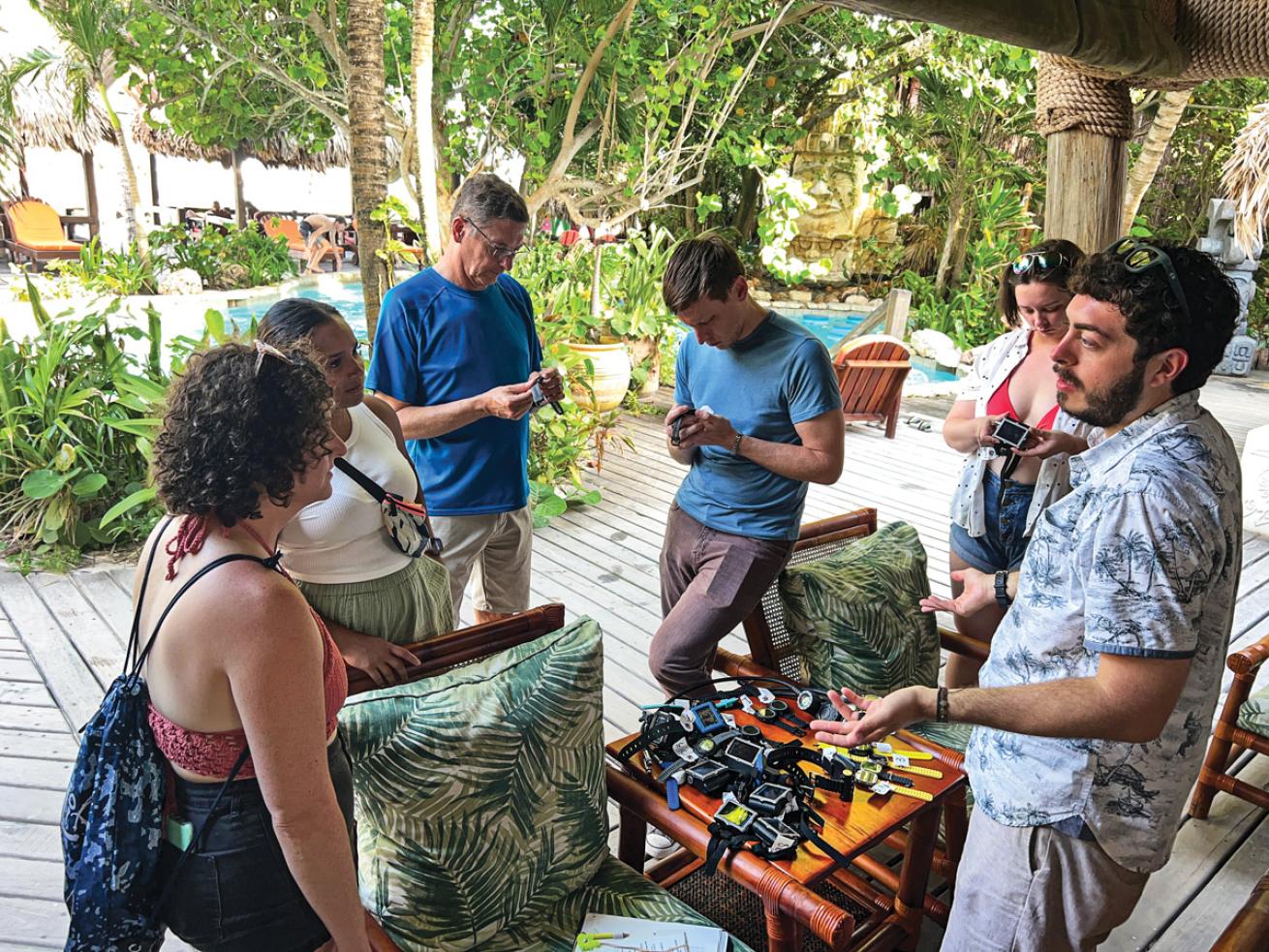
Candice LandauMyers debriefs with ScubaLab divers after computer testing.
Scuba gear comes in many configurations and styles. For the average diver, determining which models will work for them is challenging without objective reviews from professional product testers. That’s where Robby Myers comes in. As the director of ScubaLab for Scuba Diving magazine, he’s built his career on demystifying scuba gear with both labbased and in-water testing processes.
“We’re not just trying to help people find the one objective ‘best’ piece of gear, but rather the best piece of gear for them and their style of diving,” Myers says. “We do that with objective testing though independent labs— like ANSTI breathing machine tests for regulators and hyperbaric chamber testing for dive computers. We also gather groups of volunteer and staff test divers at a Florida spring and dive all the products over a couple days.”
Myers first started diving while studying communications and video production at Indiana University.
“My college was nowhere near the ocean, but it actually had a very strong academic diving program,” he says. “I just took it as an elective at first but ended up going all the way through PADI Rescue Diver.”
As he neared the end of his senior year, Myers applied for an internship with Scuba Diving magazine through the Our World Underwater Scholarship Society. “I’d definitely say it was the mix of diving experience and communications background that got me through the door,” he says.
Related Reading: The Best New Dive Computers of 2023 Reviewed
During the internship, Myers worked a flexible parttime job at a local aquarium. “The ScubaLab director at the time just started bringing me as his dive buddy to test gear in the springs,” he says. “He became a mentor to me, and I worked as his assistant for years. When he retired, I took over as ScubaLab director.”
Myers says the job of product tester and reviewer requires a variety of skill sets—first and foremost being comfortable in the water and having a broad familiarity with different kinds of dive gear. “This job doesn’t require any special certification, but you need to be comfortable enough in the water that you can have an educated opinion about the gear you’re testing,” he says. “You also need to understand how things like BCDs, regulators and dive computers work, and be able to recognize the difference between user error and a legitimate problem with a product.”
Equally important is the ability to communicate what you learn through testing to a broad audience. “It’s not enough to just say a piece of gear is good or not; you should explain why. Does that BCD shift weight in a way that makes it unstable? Does a particular computer have an algorithm that gives wildly different no-deco limits from other brands?”
Related Reading: In the Field: What It's Like to Be a Commercial Urchin Diver
Myers says one of the most interesting aspects of his job is seeing trends in dive gear and how the equipment has evolved over time. “We almost never see regulators fail breathing tests anymore—which is something we couldn’t say years ago,” he says. “We’re also seeing interesting things happening with modular BCDs that allow for on-the-fly customization and size adjustments, and lots of new features in dive computers, like Bluetooth connectivity, color displays and haptic feedback.”
Behind the scenes, the job also involves more than just jumping in the water to test gear every day.
“I’m only in the water for a couple days each month,” he says. “The rest of the time, I’m sourcing gear from manufacturers, scheduling test divers, booking accommodations and dive sites—it’s like being a trip planner organizing mini dive trips every other week."
Job Requirements
Degree: Communications, Journalism or English
Certifications: Open Water or above, with strong dive skills and familiarity with a wide range of dive gear

